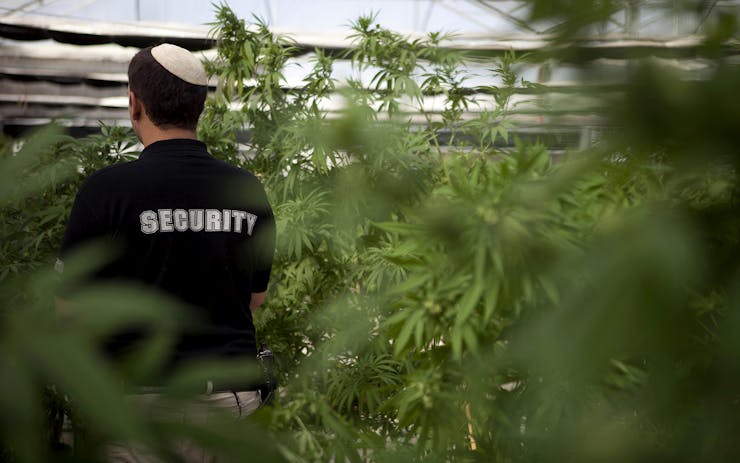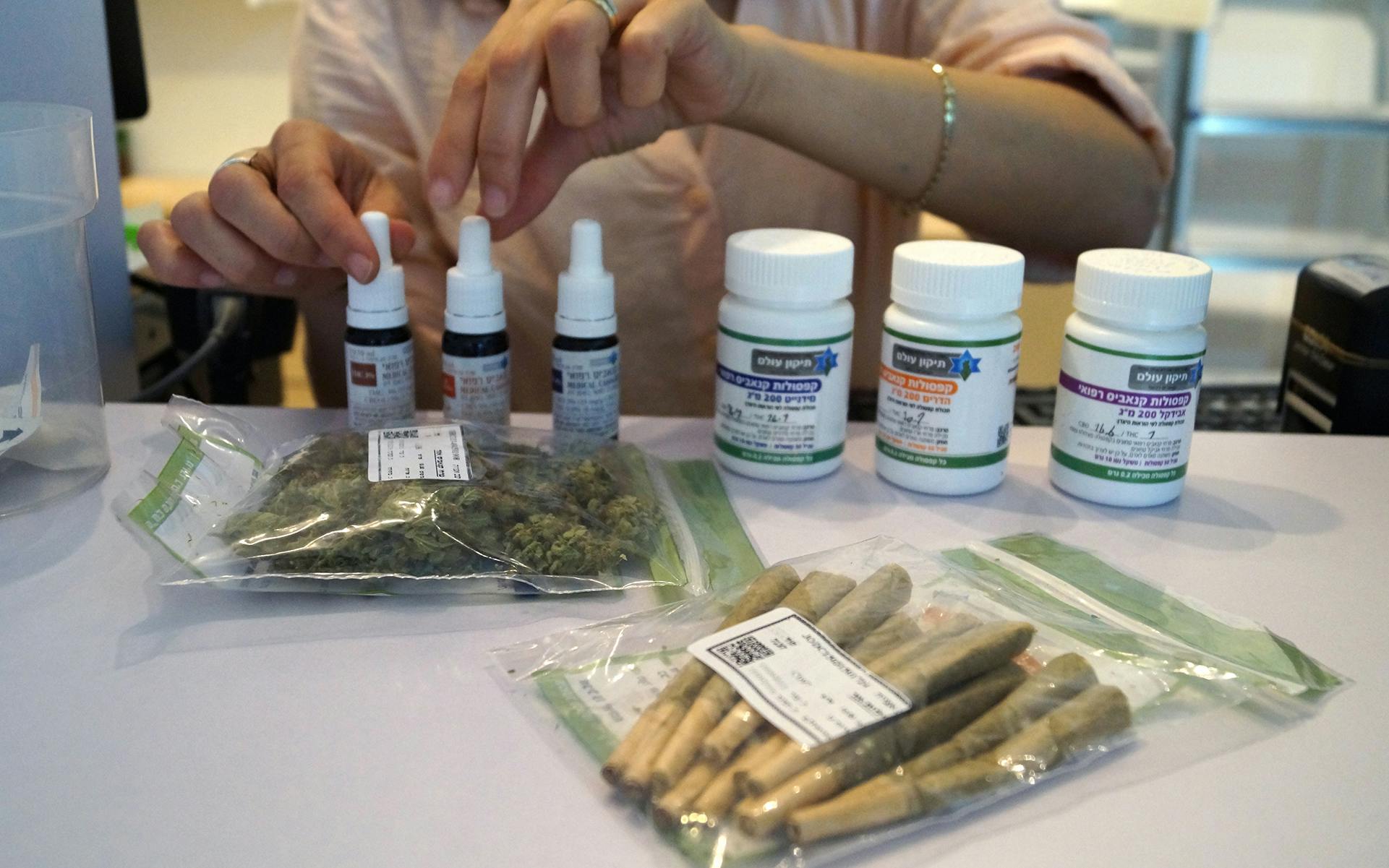Widely seen as a leader in medical cannabis research and development, an Israeli government committee last weekend approved a plan that would allow medical marijuana companies to export products internationally. The legislation could take months to make its way through the Knesset, but it’s already stoking industry and investor interest.
Currently just nine licensed suppliers provide cannabis to Israel’s roughly 26,000 registered patients, creating a modest domestic market of about $15 million to $20 million. But despite its small size, Israel has drawn an estimated $100 million dollars in international investment, according to the research group iCAN. It’s now home to dozens of companies that specialize in everything from cannabis cultivation to clinical inhalers.
Why Israel? There are at least nine good reasons why the tiny country of 8 million people is filling the void left by other major powers. If you’re an American interested in cannabis research, technology, or entrepreneurship, these explanations should make you question (and fight) the policies that have allowed the United States and others to fall behind.
1. The Professor
The Israelis jumped into the fray as far back as 1964, when an organic chemist, Dr. Raphael Mechoulam, discovered the two most prevalent components in the plant, THC and CBD. Until then, the chemistry was a mystery. Mechoulam, 88, has been researching cannabinoids ever since. “Initially the bureaucratic hurdles were minimal,” the scientist told me from his office at Hebrew University in Jerusalem. “I got the hashish I needed [to do the research] from the police—and even thanked them in my papers—and the Ministry of Health gave me their approval without too much paperwork.” There are benefits to being in a small country.
2. Prohibition in One Place Creates Opportunity in Another
In 1970, US Congress and President Richard Nixon wrongly classified cannabis as a Schedule I “narcotic,” a category reserved for substances that are highly addictive and have no medical benefits. This has essentially made it impossible for researchers without a DEA license to study the herb. Almost all cannabis research in the US is still carried out by the National Institute of Drug Abuse, which has a congressional mandate to study only the harmful effects of the drug. With researchers in the United States effectively barred from studying cannabis as medicine, teams from other countries stepped in to fill the void.

(AP Photo)
3. Persistence Pays
Mechoulam has continued to explore the effects of cannabis on disease over the last 50 years, study that has spurred research in other countries, as well. There are currently more than 20,000 small-scale studies listed on PubMed, a US government site that tracks medical publications. Researchers are investigating marijuana’s potential to treats 105 illnesses, many of which are resistant to other forms of treatment. We’re talking Type II diabetes, multiple sclerosis, Parkinson’s disease, migraines, post-traumatic stress disorder (PTSD), traumatic brain injury, and even certain forms of cancer. Despite ongoing claims that cannabis is not a healing compound, science is proving otherwise.
4. There’s Money in Medical Cannabis and the Israeli Government Is Going for It
When Israel was founded, one of the country’s ambitions was to make the desert bloom—and today the country is at the forefront of agricultural technology. Not only did growers succeed in getting flowers and fruit to blossom in the arid landscape, they also cultivated cannabis—often some very powerful stuff. The Israeli government recently announced it was investing $2 million to spur development of 13 strains to treat specific medical conditions. Agriculture Minister Uri Ariel has expanded the number of licenses granted to growers and said he would back export of locally grown medical marijuana abroad.
5. High Tech vs. “High” Tech
Israel has spawned dozens of high-tech companies in the fields of cybersecurity, transportation tech (the navigation app Waze, which Google bought for $1.1 billion in 2013, was an Israeli creation), and now cannabis. Today, there are over 70 Israeli companies involved in the sector. Pharmaceutical giant Teva is bringing the Syqe, a medical-grade cannabis inhaler, to market. Two other Israeli companies have developed sublingual marijuana tablets, which are being tested to improve cognitive functioning and treat Alzheimer’s disease.

(AP Photo/Dan Balilty)
6. The Cannaboom Isn’t Just About Capitalism
“Tikkun olam” is a Jewish rabbinical concept that means “healing the world.” Not coincidentally, it is also the name of one Israel’s largest grow operations. The phrase underpins certain social policies aimed at protecting the disadvantaged. Whether one is religious or not, the value has become part of the national ethos. Dr. Bereket Schiff-Keren, one of the country’s leading pain specialists, told me that she has bucked the opprobrium of many of her more skeptical colleagues by prescribing MMJ to over 1,500 patients suffering with chronic, neuropathic – even phantom limb — pain. “My job is to heal,” she told me in no uncertain terms. “People are so prejudiced and frightened but I stopped being frightened a long time ago, because the patients told me it works.”
Shop highly rated dispensaries near you
Showing you dispensaries near7. MMJ Is Inexpensive Compared to Pharmaceuticals
Developing countries need lower-cost solutions to safeguard public health. Fifteen years ago, the Israeli government bucked international law to create the world’s first state-supported medical cannabis program. National health insurance covers a prescription of 30 grams (a little over an ounce) per month. Today the program is 26,000 patients strong, and this year that number is projected to double. Guess what? Society hasn’t disintegrated, there’s been no outbreak of mass psychosis, and traffic fatalities haven’t increased. So much for all those the fears that prohibitionists cite.
8. God Never Dissed Cannabis
Many people believe that “kene busim,” which the Old Testament refers to as a “healing herb” was cannabis. I mean, just say the words “kene busim” out loud. It doesn’t sound like “tarragon” does it? Today, kosher edibles are blessed by rabbis, and even the country’s ultra-Orthodox health minister has called for increased cannabis cultivation to shorten the time that patients must wait to obtain their medicine.
9. Israel Wasn’t Founded by Puritans
The collective Israeli mindset around cannabis seems to be far less prudish toward the substance than that of the United States. In Israel, cannabis is a plant, not a hot-button political issue. “A lot of the problems we have in America regarding cannabis,” said psychiatrist Dr. Julie Holland, “aren’t from drug use but from our drug policies.”






